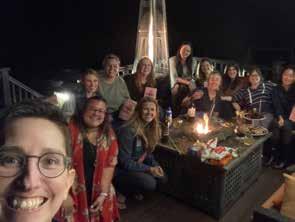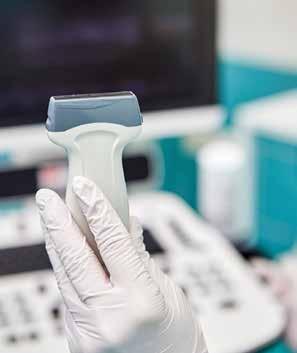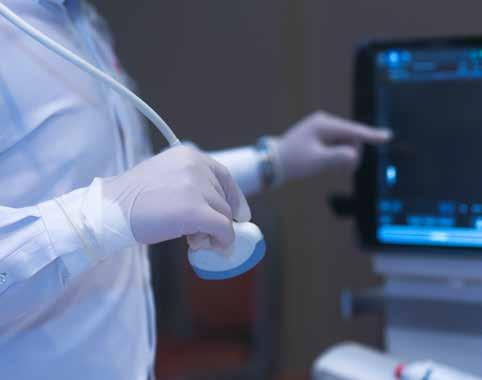SECTON REPORT YOUNG PHYSICIANS
VotER: Healthy Democracies Make Healthy Communities TaReva Warrick-Stone, DO and Peter Puthenveetil, MD FAAEM
Like many, I am encouraged by the shift among emergency physicians toward exploring our role in addressing social determinants of health. The power of these societal factors is enormous compared to health care’s capacity to counteract them. Yet, interest among emergency medicine providers is resulting in community partnerships that are improving the lives of some of our most vulnerable patients. In April 2020, though still in COVID survival-mode, I began to wonder how I could get involved in addressing some of the failures that underpin our health system and were leading to the pandemic’s disproportionate impact on black, brown, and low-income communities.1 My search led me to VotER and its healthy democracy kit.
42
change in strategy and the healthy democracy kit was born – a red, white, and blue lanyard and badge-backer with a QR code for patients to scan. This decentralized VotER framework empowered health care providers to have brief, nonpartisan conversations with patients to encourage them to be politically engaged and to vote safely by mail.
THROUGH THE EFFORTS OF HEALTH CARE PROVIDERS AND MEDICAL STUDENTS ACROSS THE STATE, WE HELPED 4,881 PEOPLE REGISTER TO VOTE AND ENGAGED 9,805.”
In June, myself and three others were invited to meet with Dr. Martin and his community organizers. The four of us – attending, fellow, resident, and medical student – met our guide in community organizing, a law student focused on civil rights and policy. Together we set out to grow the VotER effort in Pennsylvania. Using the framework of Harvard’s Marshall Ganz, our strategy was relational community organizing, a methodology that was new and inspiring to all of us. Our aim was to build a network of health care professionals registering new voters. We learned to tell our story, a public narrative. “Organizers work through narrative to deepen people’s understanding of their values, their capacity to share them, and to draw upon them for the courage to act.”4 This helped me approach my residency program with a goal to mobilize the feelings of urgency, anger, and empathy among my colleagues, and to challenge feelings of apathy, fear, and isolation all too typical of our times.
VotER was started at Massachusetts General by emergency physician Alister Martin. Dr. Martin observed that those who are more likely to present as low acuity patients in the emergency department are also more likely to be unregistered to vote – young adults, people of lower socioeconomic status, and people of color. He wanted to invite patients to be civically engaged because so much of the health care system and our health care experiences are determined by the policies of our elected officials.2 Initially, iPad-based kiosks and posters in waiting areas offered patients a convenient, nonpartisan opportunity for voter registration.3 The arrival of COVID-19 necessitated a
In approaching my residency program for support, I was fortunate that the attending in the organizing group also works in my hospital system. I also found that one of my co-residents had already requested a healthy democracy kit and begun to get posters approved to hang in the emergency department. Our program director was receptive, as was the chair of the
COMMON SENSE JANUARY/FEBRUARY 2021
DR. MARTIN OBSERVED THAT THOSE WHO ARE MORE LIKELY TO PRESENT AS LOW ACUITY PATIENTS IN THE EMERGENCY DEPARTMENT ARE ALSO MORE LIKELY TO BE UNREGISTERED TO VOTE – YOUNG ADULTS, PEOPLE OF LOWER SOCIOECONOMIC STATUS, AND PEOPLE OF COLOR.” department. Both advocated on our behalf to hospital leadership that the VotER initiative is in line with the hospital’s value to improve the lives of our patients. Aspiring to an American democracy that is inclusive of all and empowering patients to participate in shaping public policy through civic engagement is essential to eliminating health disparities and holding our government accountable.5 Legally speaking, the VotER platform simply serves as a prompt for patients to register themselves to vote. It does not involve medical providers actively registering patients. Even if it were interpreted as such, the American Hospital Association’s legal team has stated that nonprofit hospitals are permitted to conduct nonpartisan voter registration activities.6
>>























